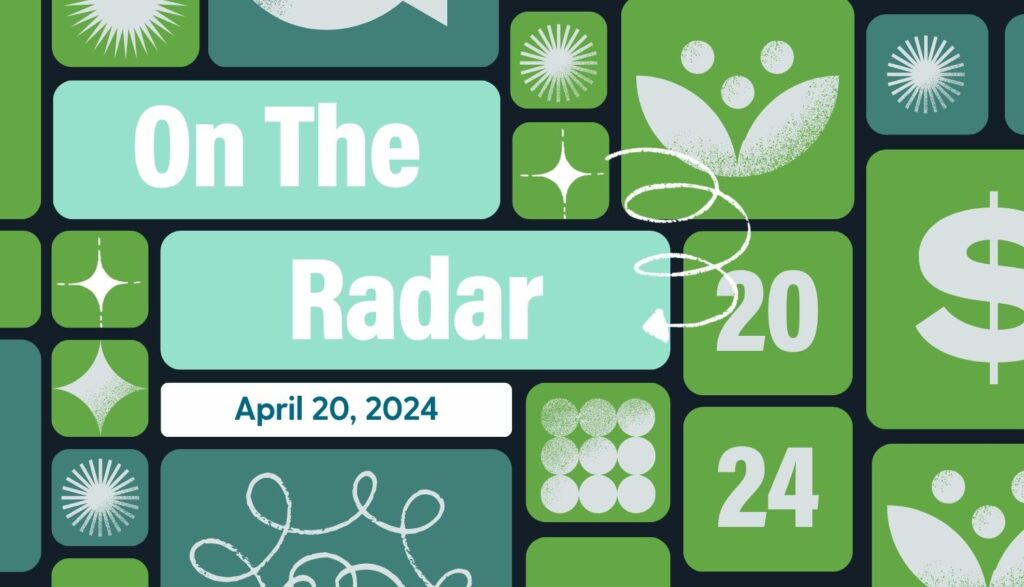Who Is ‘Shrimp Jesus’?
What? Hacked social media accounts are being rebranded by their thieves as “Christian” pages, flooding user feeds with AI-generated images of Christ in strange mediums and settings, such as Jesus on a cruise ship and, you guessed it, Christ made out of shrimp.
So What? The thieves’ true intent remains a bit foggy, but researchers have found that these stolen accounts (many of which have nothing to do with Christ at all) are using AI images to generate engagement—one post had “40 million views and more than 1.9 million interactions” according to a recent study—and then flood viewers with spam and scam links.
Now What? Perhaps you’ve come across “Shrimp Jesus” or “Cruise Ship Jesus” on your own. Perhaps your teenager sent you the post for a laugh. Whatever the case, remind your teen of the importance of online safety, even in seemingly silly things. Verify the accounts you follow (as I mentioned, several of these photos came from hacked pages). Don’t click on external links unless you trust the source. And maybe don’t engage with content that is, at best, trolling the masses.
Less Than 1% of Parents Are Actually Using Parental Controls
What? NBC reports that fewer than 1% of minors have parents who have activated parental control features on popular social media platforms Discord and Snapchat.
So What? Although a study by Pew Research Center shows these aren’t the most popular apps among teens, this still leaves millions of children navigating these channels without any sort of help from parental controls—2.68 million children on Discord and 59.6 million on Snapchat.
Now What? Congress is cracking down on social media platforms, introducing new pieces of legislation, such as the Kids Online Safety Act, in an effort to hold those platforms accountable for the harms children are experiencing, says the Parents Television and Media Council. But some parents may not have time to wait for this and other laws to pass. Take action now by activating the parental controls on the social media platforms your kids use. And consider deleting apps (such as X) that don’t have any.
YouTube Shorts and TikTok Feeding Teen Boys Harmful Content
What? A study by the Dublin City University Anti-Bullying Center found that TikTok and YouTube Shorts algorithms are “bombarding boys and men with misogynistic and male supremacist content within minutes of signing up,” regardless of whether they seek the content or not.
So What? The Pew Research Center states that 96% of teen boys use YouTube, and 59% use TikTok. And while this type of “toxic” content most severely impacts girls and women, experts suggest that it can also be damaging to the mental wellbeing of the boys and men who watch it.
Now What? Although these social media companies are making attempts to remove the harmful content, it’s almost impossible to permanently remove a video from the internet once it’s been posted thanks to the ability to instantly share and download such content. The best thing parents can do is to talk to their kids about this stuff. Ask how those types of videos make them feel. Ask how they would respond if a friend starting acting or talking like one of those video creators. And if necessary, get them to take frequent breaks from social media in order to clear their minds (and their feeds).








2 Responses
> Shrimp Jesus
A Jewish friend of mine recently dissected an album full of pictures appearing to be a Passion play staged by infants (inappropriate enough in itself, and seeing infant Jesus covered in blood makeup was painful to see), pointing out two things:
1) It’s important to know how to recognize AI pictures, especially when so much of their source content is stolen from existing artwork and photographs
2) It’s important to know how to recognize when content is meant to drive or provoke engagement, especially on social-media platforms that benefit the longer we spend time on them, since we see more ads.
I liked your “Now what?” advice. That was solid.
____________
> Parental Controls (especially on social media)
Twitter’s scantily clad spambots make the site essentially unusable for minors, since I don’t know of any safeguard against their advertising their services (probably scams or viruses, but that’s not the point) to users under the age of legal consent. When I saw your headline, I figured it was referring to parental controls on streaming services, and as soon as I saw “Poor Things” pop up on my Disney menu (“excellent movie with probably the single biggest ethical issue I’ve ever seen in the making of a film”), I thought to myself, “Parents need to know how parental controls work and why they’re important, and they need to know now.”
____________
Thank you for talking about misogyny. Too often it’s excused as “boys will be boys” or covered up in any of varying religious contexts (celestial hierarchy, “God-ordained,” etc.), both in the East and the West. And too many women (and men, and boys) have suffered for it, including in some churches.
Good article.